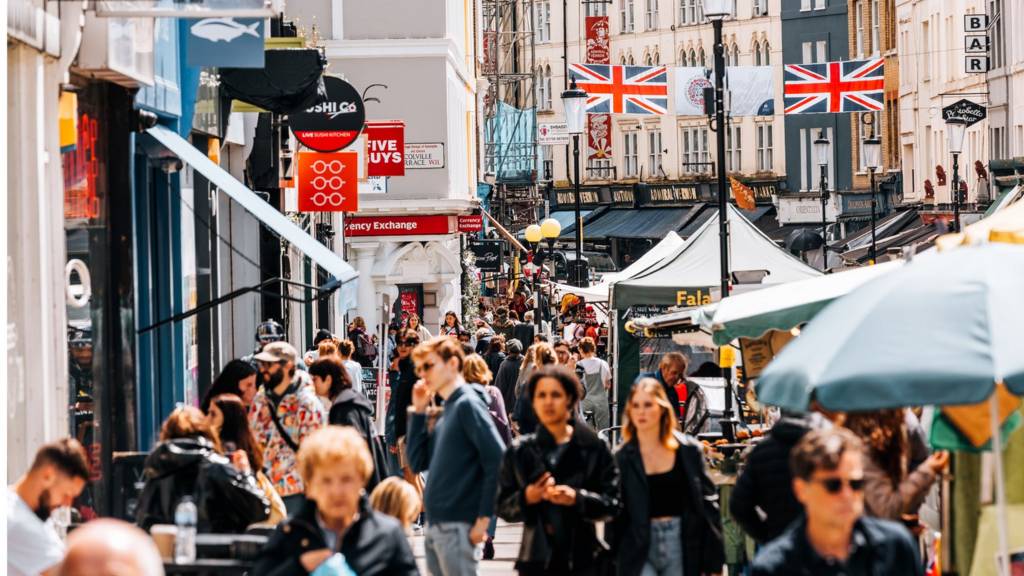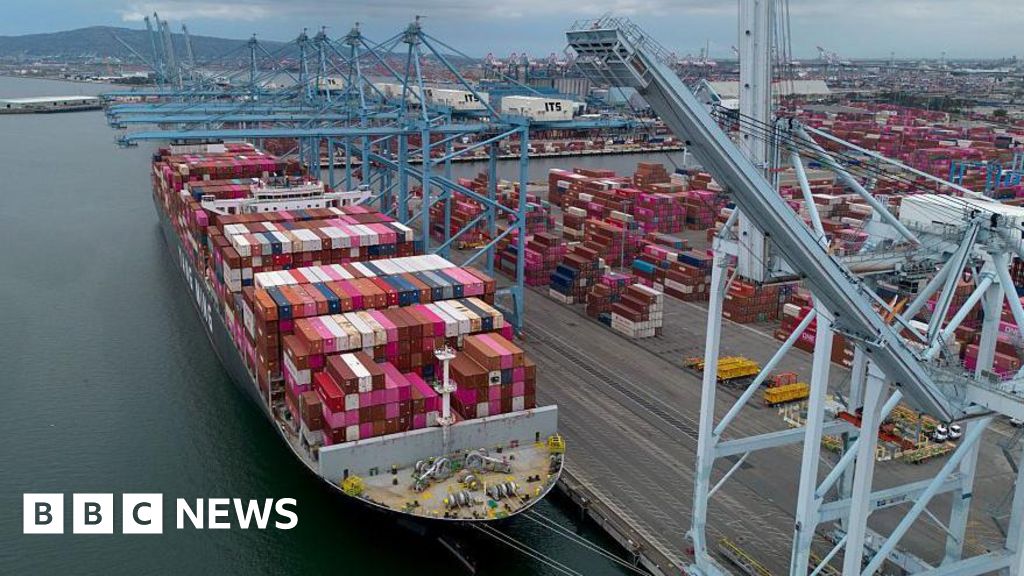ARTICLE AD BOX

1,267
viewing this page
Got a TV Licence?
You need one to watch live TV on any channel or device, and BBC programmes on iPlayer. It’s the law.
Live Reporting
Edited by Emily McGarvey and Aoife Walsh
All times stated are UK
How is GDP measured?
GDP can be measured in three ways:
- Output: The total value of the goods and services produced by all sectors of the economy - agriculture, manufacturing, energy, construction, the service sector and government
- Expenditure: The value of goods and services bought by households and by government, investment in machinery and buildings - this also includes the value of exports, minus imports
- Income: The value of the income generated, mostly in terms of profits and wages
In the UK, the ONS publishes one single measure of GDP, which is calculated using all three measurements.
But early estimates mainly use the output measure, using data collected from thousands of companies.
Bank of England boss weighs in on UK economy row

Copyright: Getty Images
The Bank of England governor has weighed in on a row over whether the UK economy is recovering from the cost-of-living crisis.
Andrew Bailey told the BBC that the UK economy had "turned a corner".
He made the comments ahead of figures due out this morning expected to confirm that the UK is no longer in recession.
The government has pressed the case that the economy has turned around, but Labour has described such views as "delusional".
Bailey said the UK economy was now going into a "gradual growth phase" - not a "strong recovery" - but that there was "good news" in household incomes increasing.
- Read more here
How does GDP affect me?

Copyright: BBC
The government can use growing GDP as evidence that it is doing a good job of managing the economy. Likewise, if GDP falls, opposition politicians say the government is running it badly.
If GDP is going up steadily, people pay more in tax because they're earning and spending more.
This means more money for the government, which it can choose to spend on public services, such as schools, police and hospitals.
When the economy shrinks and a country goes into recession, these things can go into reverse.
Governments tend to get less money in tax, which means they may decide to freeze or cut public spending. Or taxes may rise.
In 2020, the Covid pandemic caused the most severe UK recession for more than 300 years, which forced the government to borrow hundreds of billions of pounds to support the economy.
What is a recession?
A quick reminder - a country is usually described as being in a technical recession if GDP falls for two successive three-month periods - known as quarters.
The UK fell into recession at the end of last year after the economy shrank by 0.1% in the third quarter and by 0.3% in the fourth quarter.
What is GDP and how is it worked out?
GDP is a measure of all the economic activity of companies, governments and people in a country.
In the UK, new GDP figures are published by the Office of National Statistics (ONS) every month.
However, quarterly figures - covering three months at a time - are considered more important.
Most economists, politicians and businesses like to see GDP rising steadily, because it usually means people are spending more, extra jobs are created, more tax is paid and workers get better pay rises.
When GDP is falling, it means the economy is shrinking - which can be bad news for businesses and workers.
- Read more here
Latest GDP figures to be published shortly

Emily McGarvey
Live editor
Good morning, and welcome to our coverage of today’s big economic story - whether the UK is still officially in recession.
In just under an hour’s time we’ll find out just how well the economy is doing with what’s known as the GDP figures, or Gross Domestic Product.
GDP, which broadly covers economic growth, measures the value of goods and services that the UK produces. It's measured by looking at output, expenditure and income.
Basically, when the number rises it means the economy's doing well - and when it falls it’s doing badly.
GDP matters because it influences how businesses act, how the government chooses to set its tax and spending policies, and what the Bank of England does with its interest rates.
We’ll get the latest figures from the Office for National Statistics at 07:00 BST. Stick with us for the announcement, as well as reaction and analysis from our experts.

 1 year ago
85
1 year ago
85










 English (US) ·
English (US) ·